Animals head for freedom as Argentina closes zoo

Animals by the hundreds are being set free as Buenos Aires closes its 140-year-old Palermo zoo.
Among the first to leave will be birds of prey like owls and chimangos, destined for a reserve along the shores of the Rio de la Plata south of the capital. They will be placed there in larger confines that will give them room to stretch and strengthen their winds before they're ready for the wild.
Others among the 1,500 animals at the zoo are destined for reserves in Argentina and abroad as their old home is transformed into a park.
Some animals will have to stay due to age or illness, including a lion cub with hypothyroidism, an elderly anteater and a snow leopard.
Javier Goldschtein of Forest Bank Foundation, a member of the commission overseeing the transformation of the zoo, said Sandra the orangutan will also have to stay, but in a larger, better enclosure than the one she now endures.
Pupi and Kuki the elephants are apparently headed for greater freedom. Goldschtein said experts are still determining if they can move a third elephant, Maria, who was rescued from a circus where she was mistreated.
Among other animals still housed in the cages at the otherwise abandoned zoo are llamas, hippopotamuses, lions, mandrills, a zebra, lions, and a forlorn baby monkey that holds the wire mesh with both hands. A duck waddles along an empty path and ticket booths are closed, with no one waiting in line.
The zoo was a favorite haunt of novelist Jorge Luis Borges as a boy. It was inaugurated in 1875 on what was then the outskirts of Buenos Aires but is now encircled by noisy neighborhoods, with bleating buses passing a few yards from the giraffe cage. Many of the enclosures are considered inhumane by modern standards.
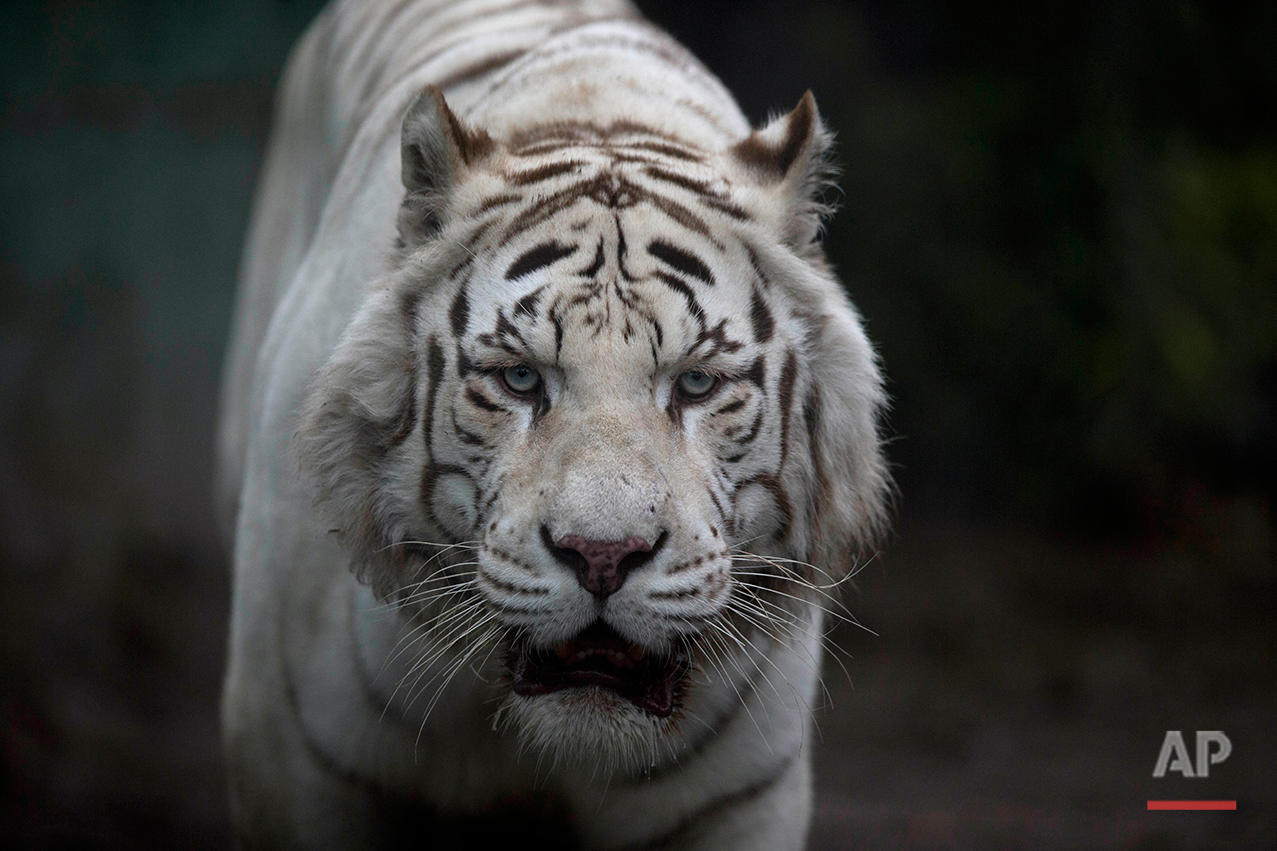
Argentina Closing the Zoo Photo Gallery
The white tiger walks inside its cage at the former Buenos Aires Zoo in Argentina, Friday, July 1, 2016. The city government has announced it will transform the city's zoo into an ecological park, for a limited number of species, and will begin with the transfer of birds of prey to natural reserves. Their plan to also transform the current site into a conservation and research site will take years while veterinarians decide which animals can be transferred to local reserves and abroad. Some will stay at the ecological park, but in what officials describe as much better conditions. (AP Photo/Natacha Pisarenko)
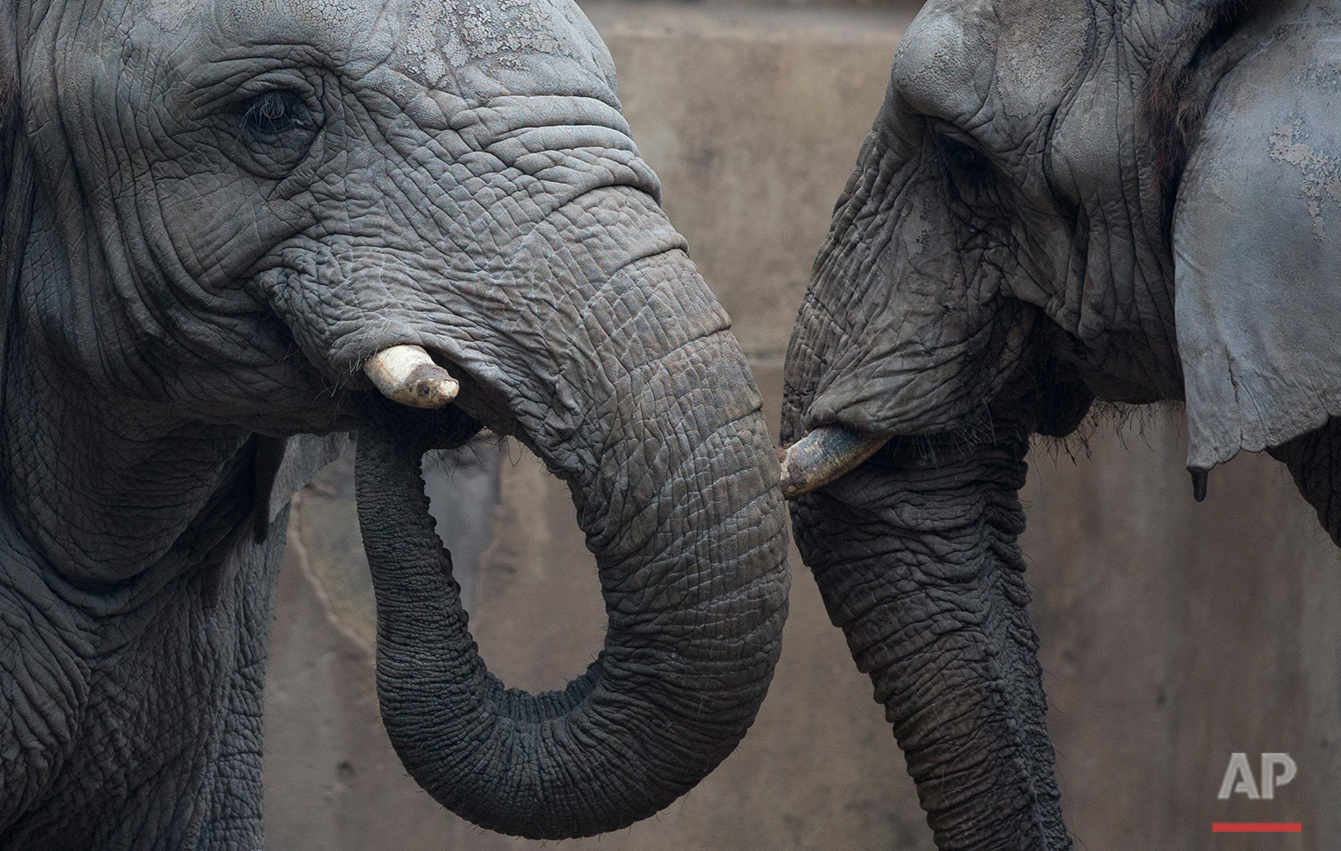
Argentina Closing the Zoo Photo Gallery
Elephants from Africa named "Pupi" and "Kuki" walk inside the former Buenos Aires Zoo in Argentina, Friday, July 1, 2016. The city government announced last week it will transform the city's zoo into an ecological park for a limited number of species, and will begin with the transfer of birds of prey to natural reserves. Their plan to also transform the current site into a conservation and research facility will take years while veterinarians decide which animals can be transferred to local reserves and abroad. Those who stay at the ecological park will live in what officials describe as much better conditions. (AP Photo/Natacha Pisarenko)
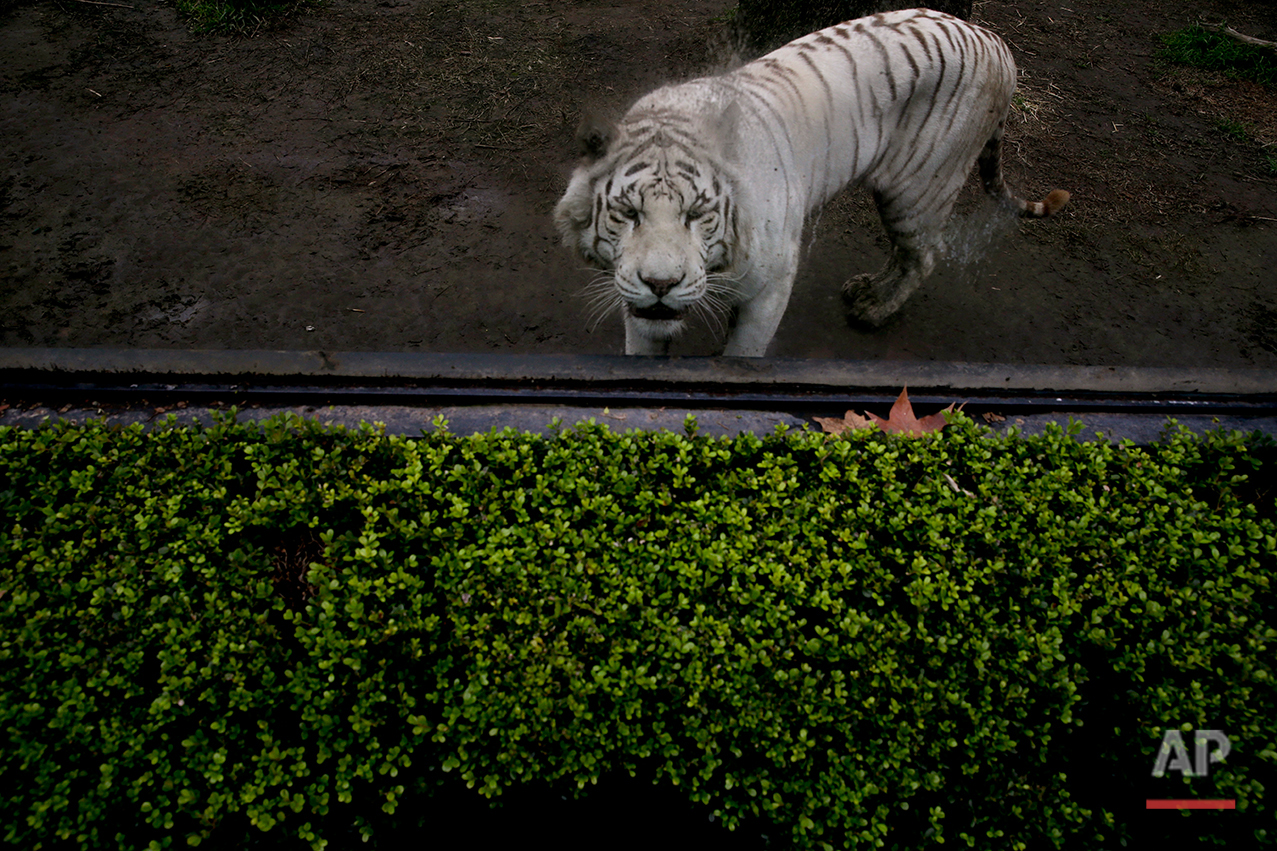
Argentina Closing the Zoo Photo Gallery
The white tiger looks out from behind a window inside its enclosure at the former Buenos Aires Zoo in Argentina, Friday, July 1, 2016. The city government announced last week it will transform the city's zoo into an ecological park for a limited number of species, and begin with the transfer of birds of prey to natural reserves. Their plan to also transform the site into a conservation and research facility will take years while veterinarians decide which animals can be transferred to reserves, locally and abroad. Those who stay at the ecological park will live in what officials describe as much better conditions. (AP Photo/Natacha Pisarenko)
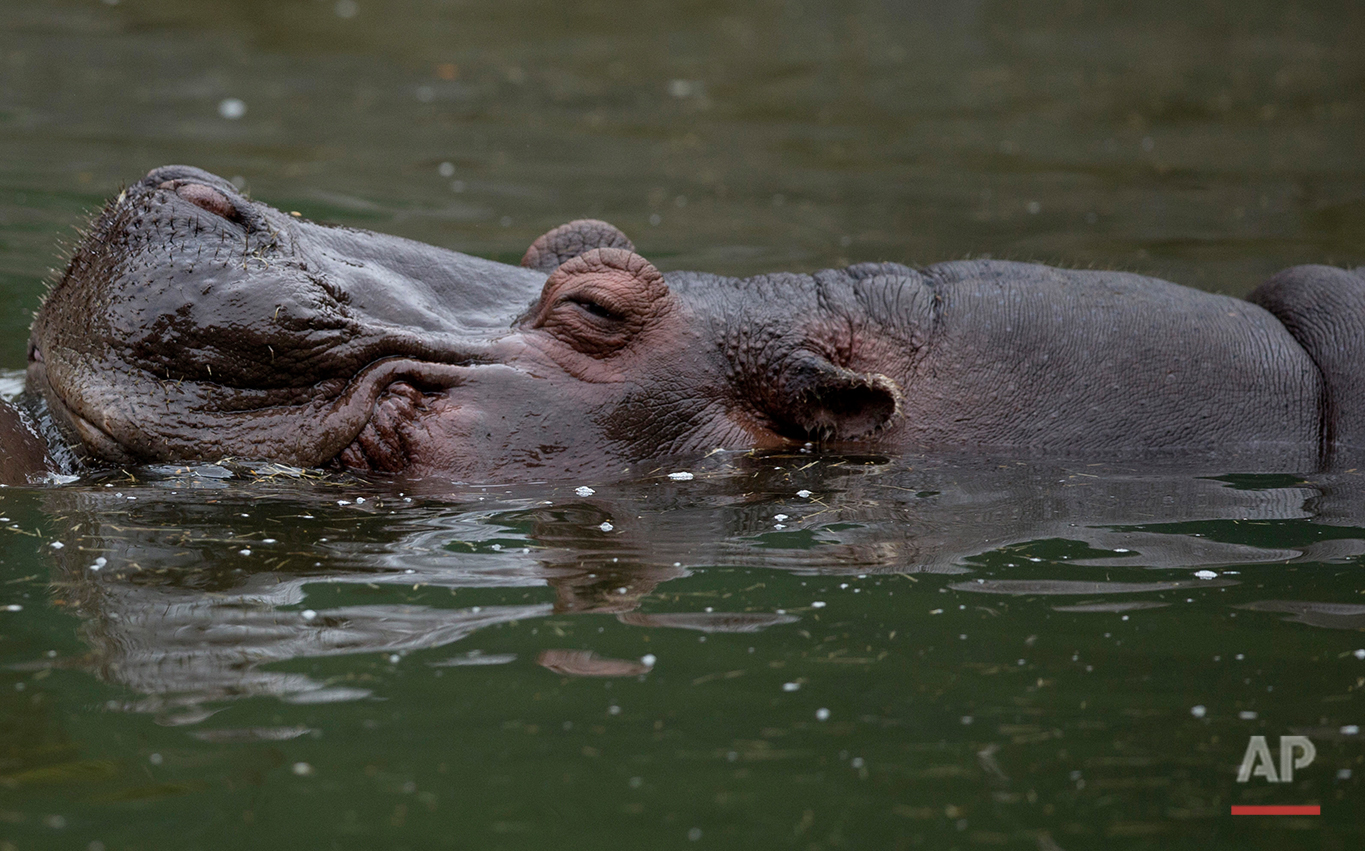
Argentina Closing the Zoo Photo Gallery
A hippo swims inside the former Buenos Aires Zoo in Argentina, Friday, July 1, 2016. The city government announced last week it will transform the city's zoo into an ecological park for a limited number of species, and begin with the transfer of birds of prey to natural reserves. Their plan to also transform the site into a conservation and research facility will take years while veterinarians decide which animals can be transferred to reserves, locally and abroad. Those who stay at the ecological park will live in what officials describe as much better conditions. (AP Photo/Natacha Pisarenko)
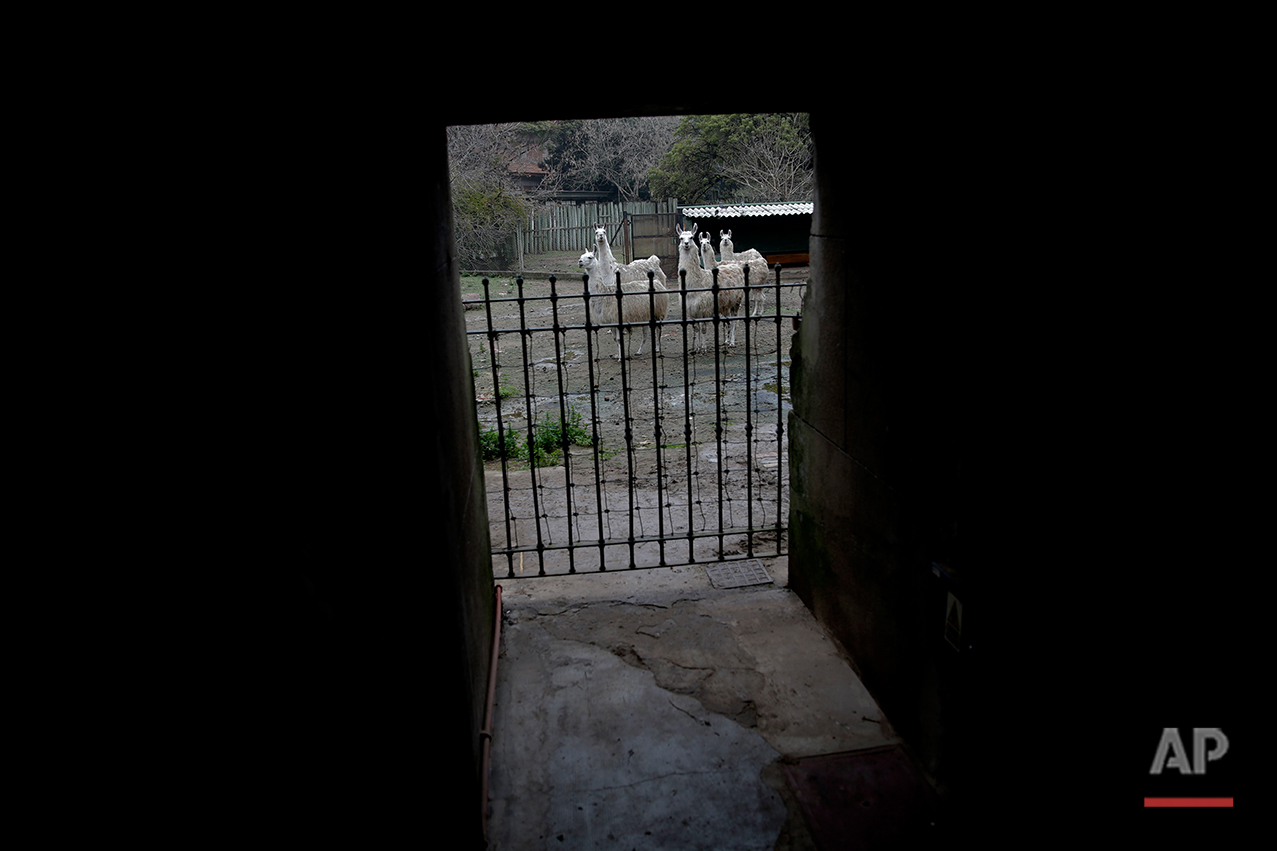
Argentina Closing the Zoo Photo Gallery
Llamas walks inside the former Buenos Aires Zoo in Argentina, Friday, July 1, 2016. The city government announced last week it will transform the city's zoo into an ecological park for a limited number of species, and begin with the transfer of birds of prey to natural reserves. Their plan to also transform the current site into a conservation and research facility will take years while veterinarians decide which animals can be transferred to local reserves and abroad. Those who stay at the ecological park will live in what officials describe as much better conditions. (AP Photo/Natacha Pisarenko)
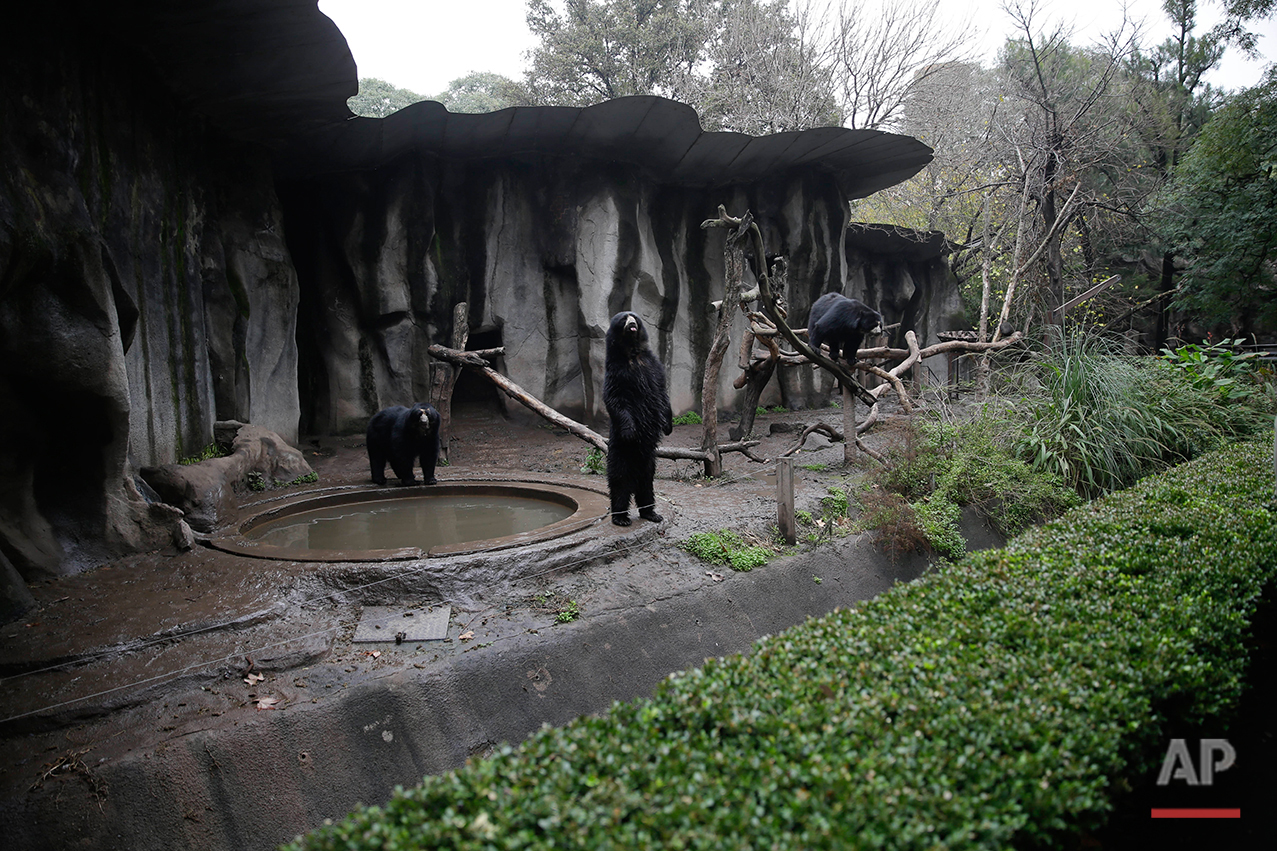
APTOPIX Argentina Closing the Zoo Photo Gallery
Bears roam inside their enclosed environment at the former Buenos Aires Zoo in Argentina, Friday, July 1, 2016. The city government announced last week it will transform the city's zoo into an ecological park for a limited number of species, and will begin with the transfer of birds of prey to natural reserves. Their plan to also transform the site into a conservation and research facility will take years while veterinarians decide which animals can be transferred to local reserves and abroad. Those who stay at the ecological park will live in what officials describe as much better conditions. (AP Photo/Natacha Pisarenko)
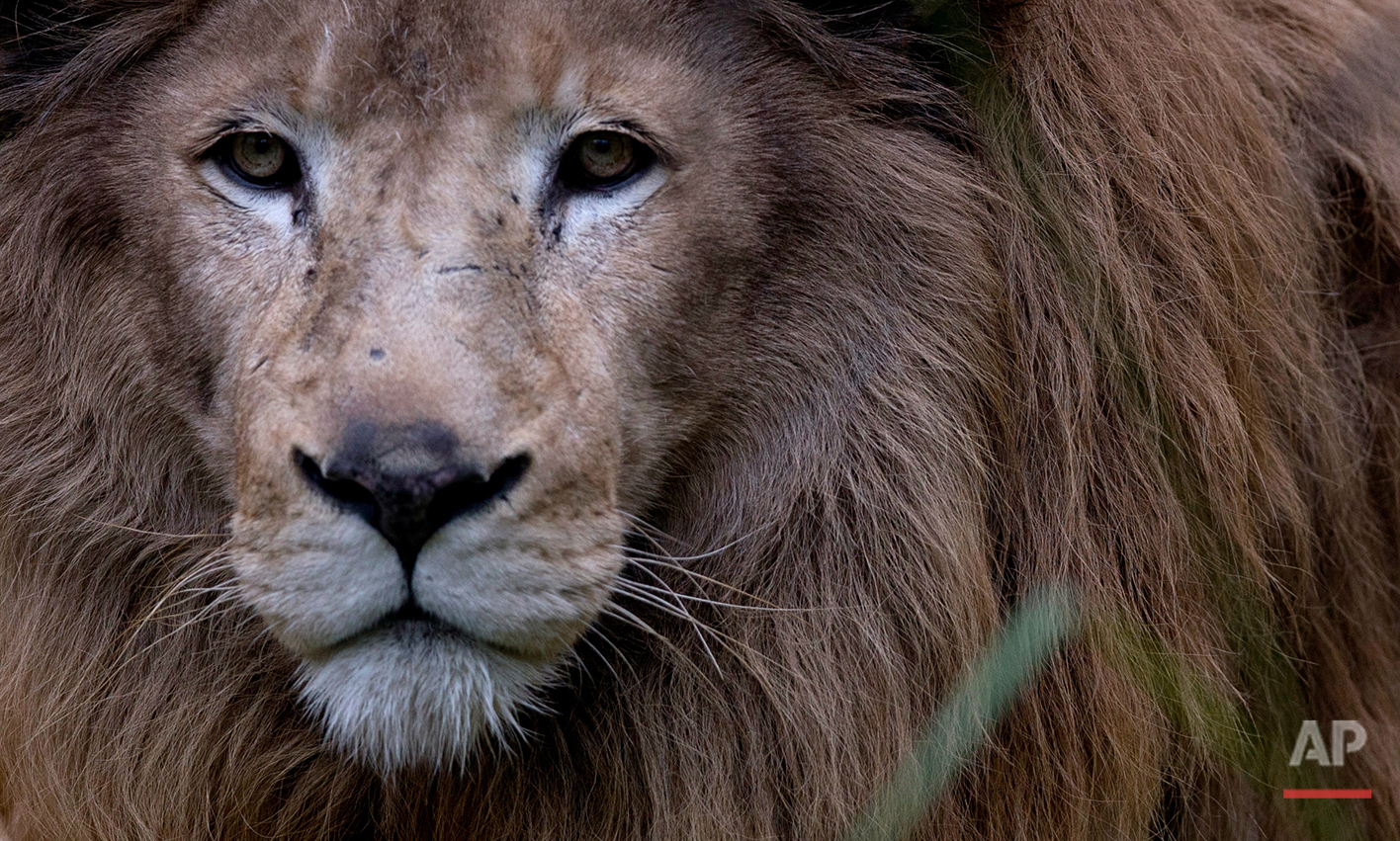
Argentina Closing the Zoo Photo Gallery
A lion sits inside a cage at the former Buenos Aires Zoo in Argentina, Friday, July 1, 2016. The city government announced last week it will transform the city's zoo into an ecological park for a limited number of species, and begin with the transfer of birds of prey to natural reserves. Their plan to also transform the current site into a conservation and research facility will take years while veterinarians decide which animals can be transferred to local reserves and abroad. Those who stay at the ecological park will live in what officials describe as much better conditions. (AP Photo/Natacha Pisarenko)
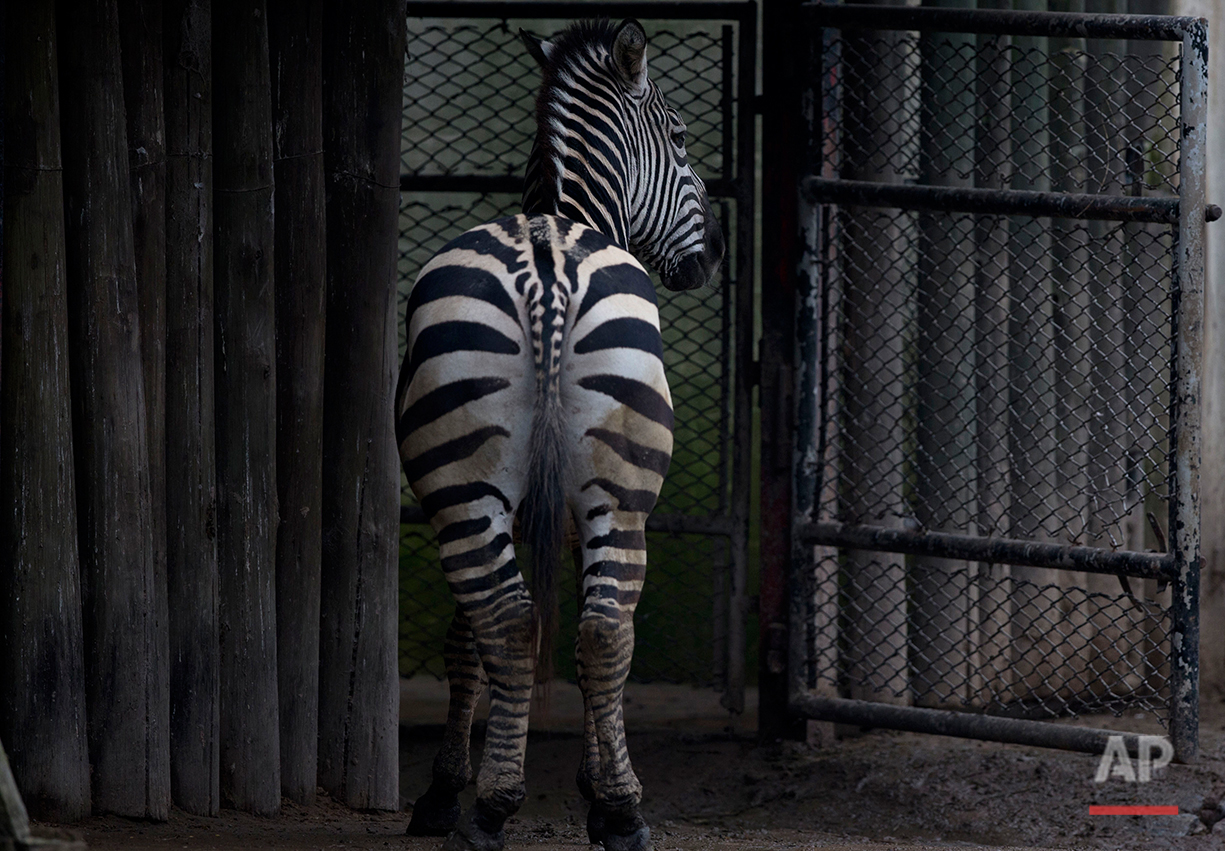
Argentina Closing the Zoo Photo Gallery
A zebra stands inside her cage at the former Buenos Aires Zoo in Argentina, Friday, July 1, 2016. The city government announced last week it will transform the city's zoo into an ecological park for a limited number of species, and will begin with the transfer of birds of prey to natural reserves. Their plan to also transform the current site into a conservation and research facility will take years while veterinarians decide which animals can be transferred to local reserves and abroad. Those who stay at the ecological park will live in what officials describe as much better conditions. (AP Photo/Natacha Pisarenko)
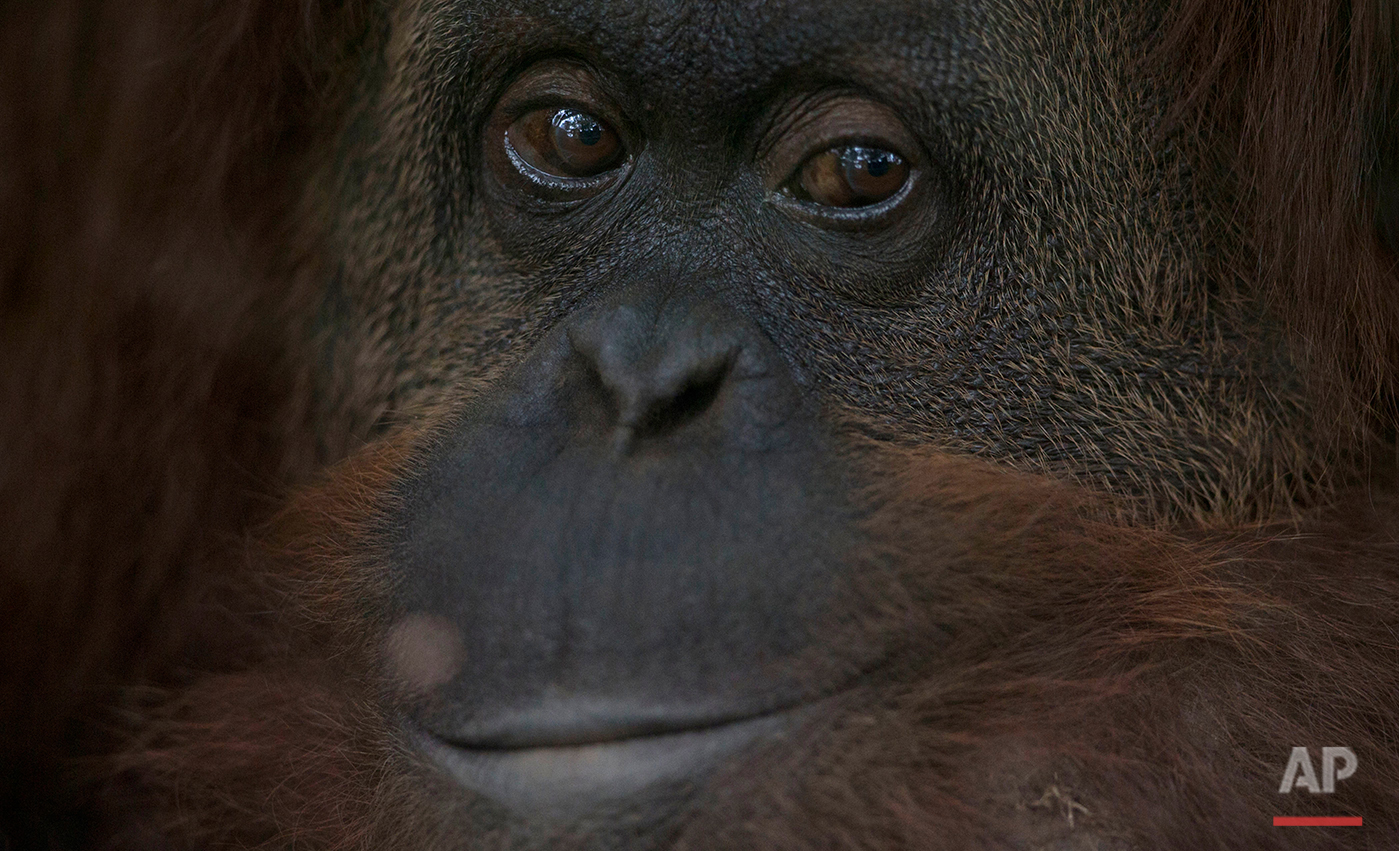
Argentina Closing the Zoo Photo Gallery
An orangutan named "Sandra" sits inside an enclosure at the former Buenos Aires Zoo in Argentina, Friday, July 1, 2016. The city government announced last week it will transform the city's zoo into an ecological park for a limited number of species, and begin with the transfer of birds of prey to natural reserves. Their plan to also transform the site into a conservation and research facility will take years while veterinarians decide which animals can be transferred to reserves, locally and abroad. But Sandra won’t be going with them. She’ll stay in a larger, better enclosure than the one she now endures, said Javier Goldschtein of Forest Bank Foundation, a member of the commission overseeing transformation of the zoo. (AP Photo/Natacha Pisarenko)
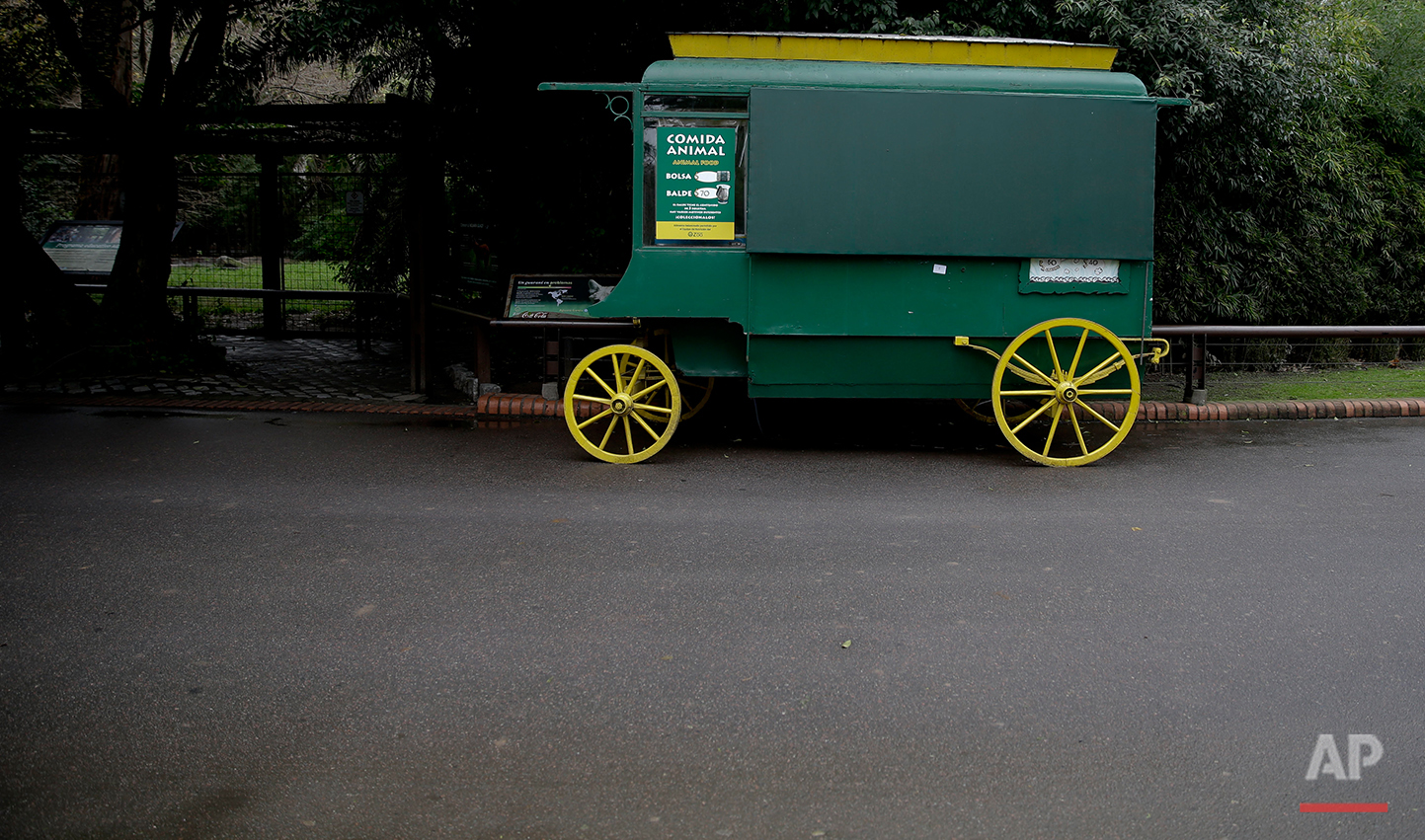
Argentina Closing the Zoo Photo Gallery
A shop that sold food for visitors to feed animals stands closed inside the former Buenos Aires Zoo inside the Buenos Aires, Argentina, Friday, July 1, 2016. The city government has announced it will transform the city's zoo into an ecological park, for a limited number of species, and will begin with the transfer of birds of prey to natural reserves. Their plan to also transform the current site into a conservation and research site will take years while veterinarians decide which animals can be transferred to local reserves and abroad. Some will stay at the ecological park, but in what officials describe as much better conditions. Officials said the food carts will be removed. (AP Photo/Natacha Pisarenko)
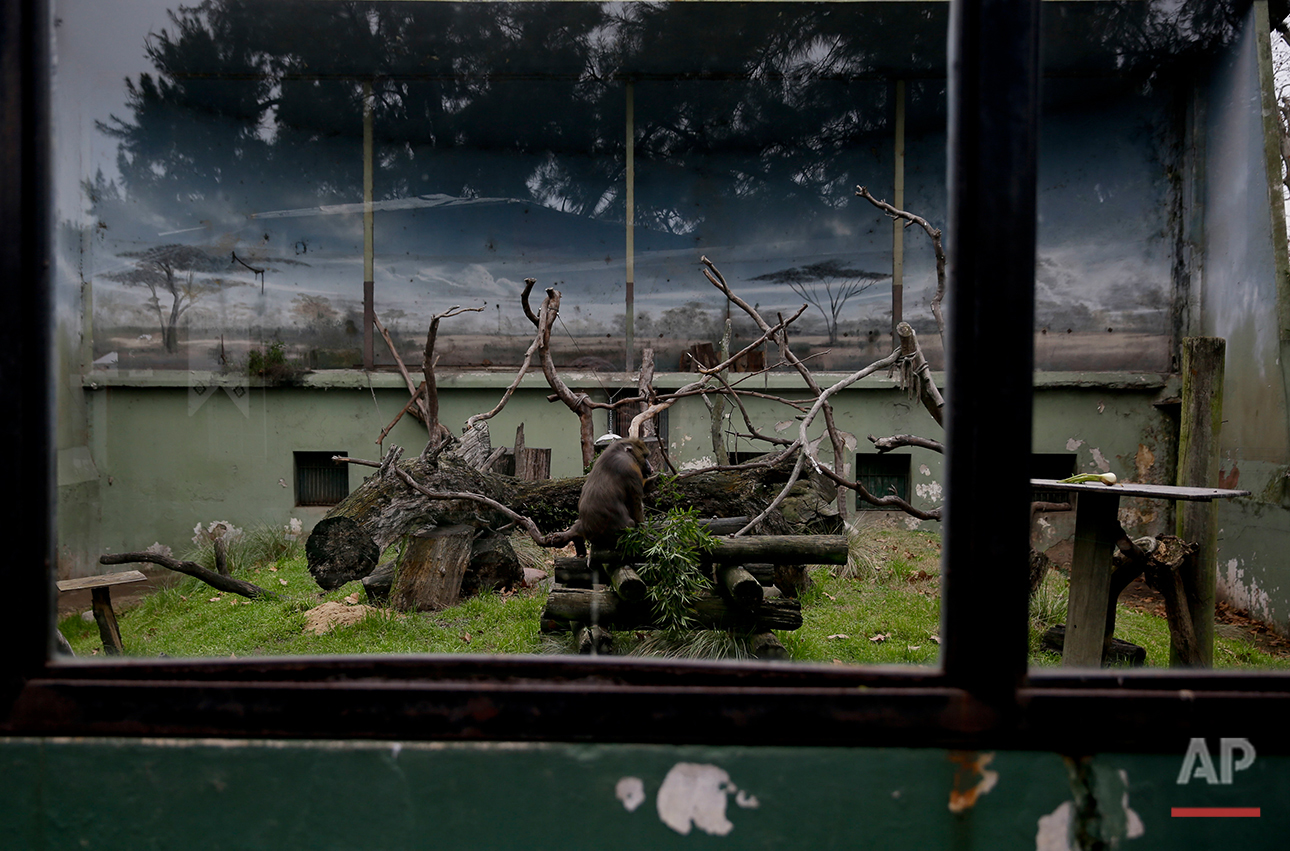
Argentina Closing the Zoo Photo Gallery
A mandrill sits inside his cage at the former Buenos Aires Zoo in Argentina, Friday, July 1, 2016. The city government announced last week it will transform the city's zoo into an ecological park for a limited number of species, and begin with the transfer of birds of prey to natural reserves. Their plan to also transform the site into a conservation and research facility will take years while veterinarians decide which animals can be transferred to reserves, locally and abroad. Those who stay at the ecological park will live in what officials describe as much better conditions. (AP Photo/Natacha Pisarenko)
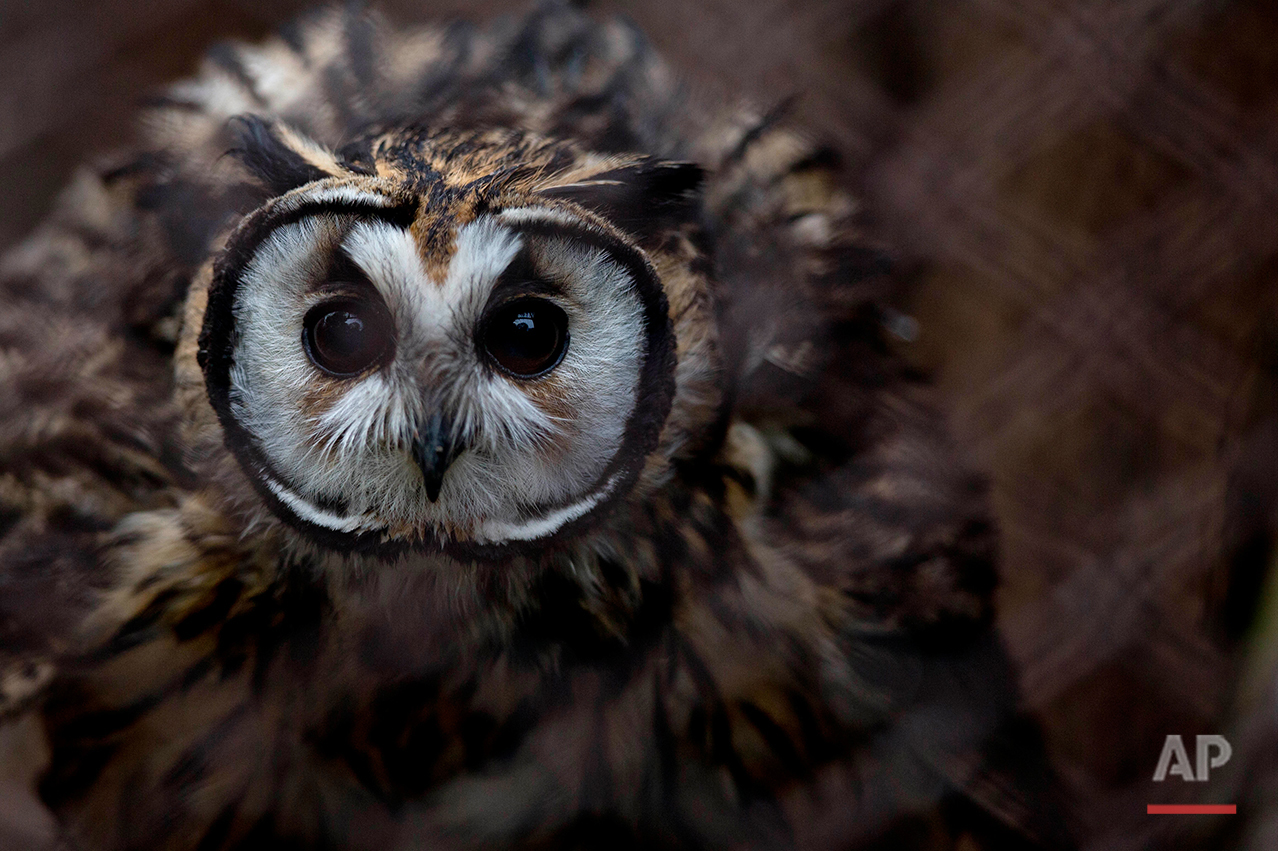
Argentina Closing the Zoo Photo Gallery
An owl peers from inside its cage at the former Buenos Aires Zoo in Argentina, Friday, July 1, 2016. The city government announced last week it will transform the city's zoo into an ecological park for a limited number of species, and begin with the transfer of birds of prey to natural reserves. Their plan to also transform the site into a conservation and research facility will take years while veterinarians decide which animals can be transferred to reserves, locally and abroad. Those who stay at the ecological park will live in what officials describe as much better conditions. (AP Photo/Natacha Pisarenko)
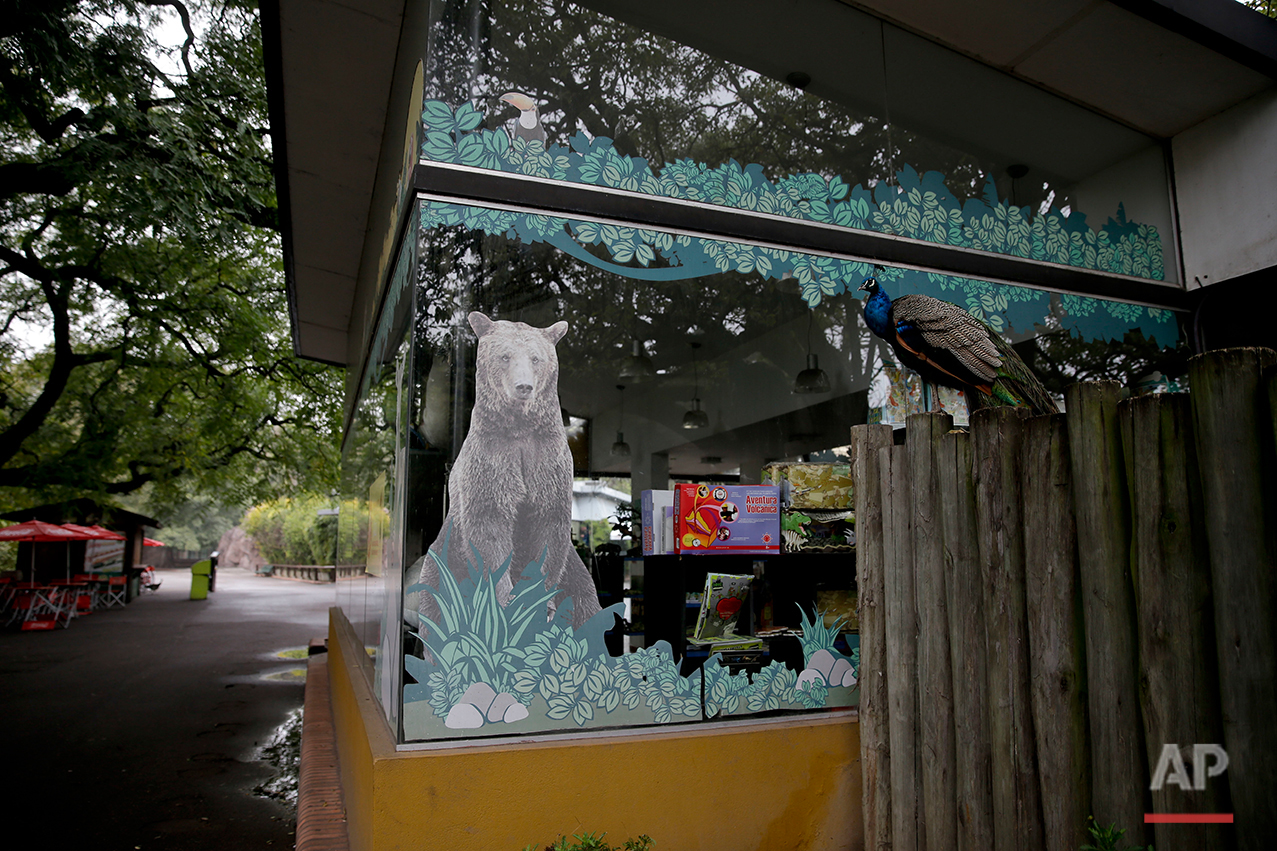
Argentina Closing the Zoo Photo Gallery
A peacock stands on a fence outside a souvenir shop inside the former Buenos Aires Zoo, Argentina, Friday, July 1, 2016. The city government announced last week it will transform the city's zoo into an ecological park for a limited number of species, and begin with the transfer of birds of prey to natural reserves. Their plan to also transform the site into a conservation and research facility will take years while veterinarians decide which animals can be transferred to reserves, locally and abroad. Those who stay at the ecological park will live in what officials describe as much better conditions. (AP Photo/Natacha Pisarenko)
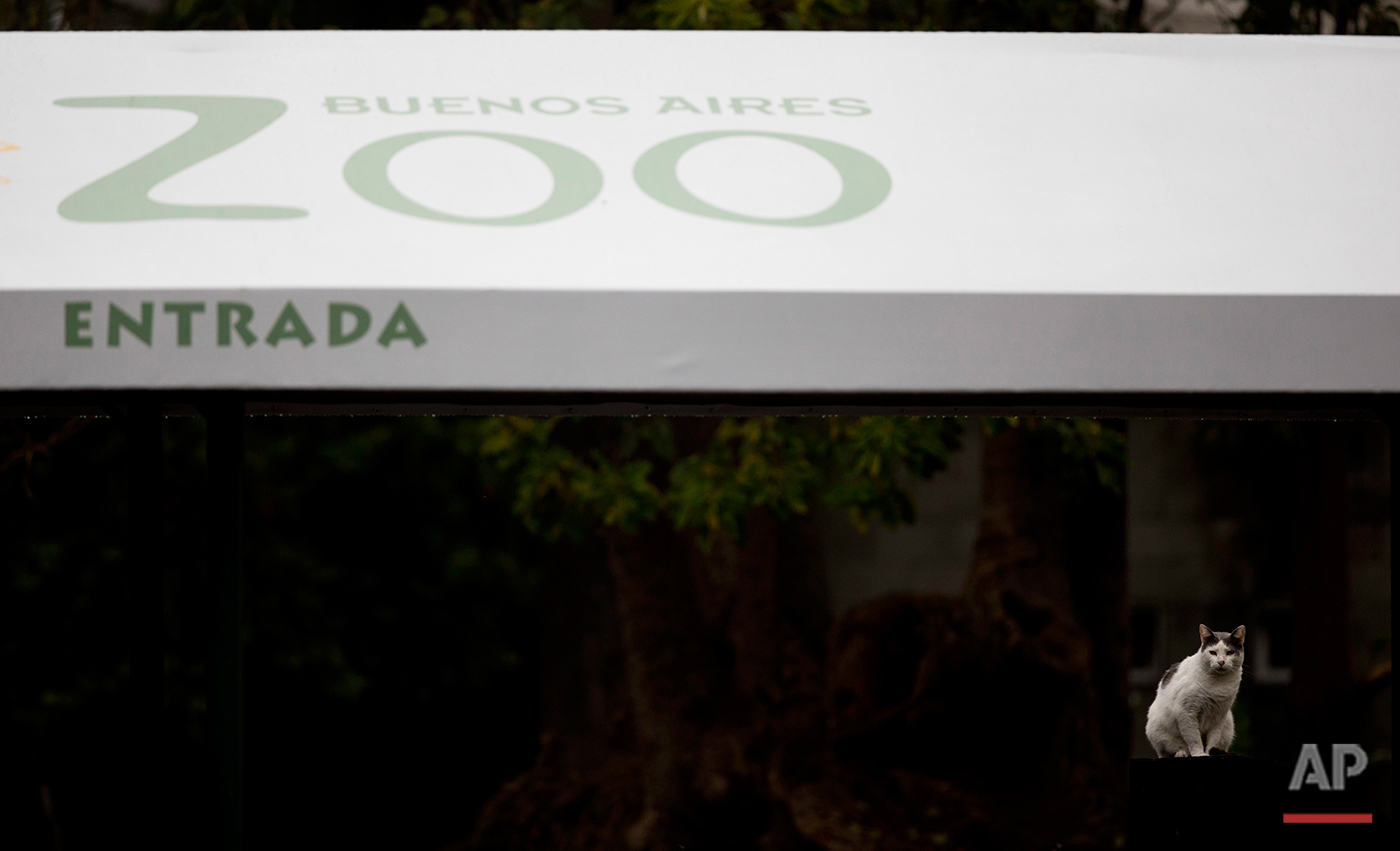
Argentina Closing the Zoo Photo Gallery
A cat sits under a sign for the city zoo in Buenos Aires, Argentina, Friday, July 1, 2016. The city government announced last week it will transform the city's zoo into an ecological park for a limited number of species, and begin with the transfer of birds of prey to natural reserves. Their plan to also transform the site into a conservation and research facility will take years while veterinarians decide which animals can be transferred to reserves, locally and abroad. Those who stay at the ecological park will live in what officials describe as much better conditions. (AP Photo/Natacha Pisarenko)
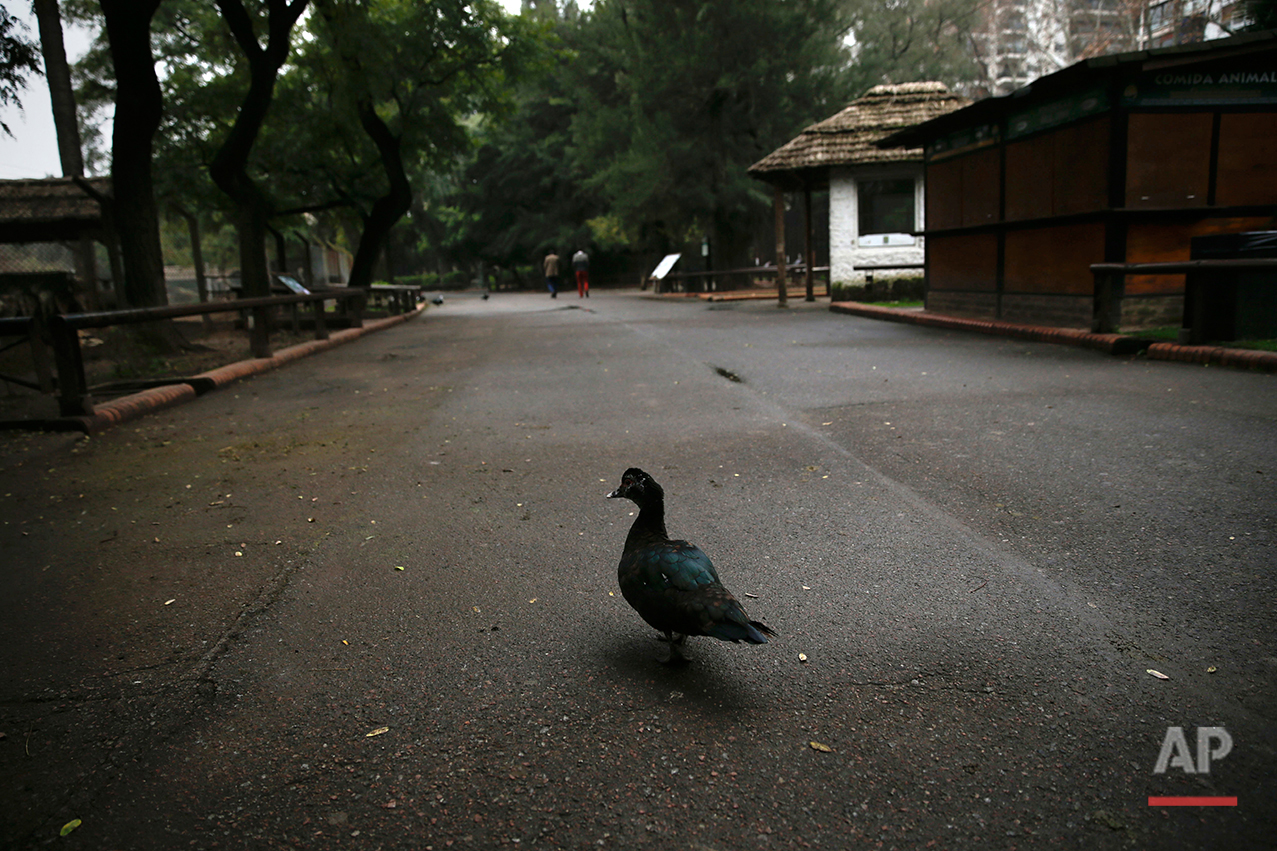
Argentina Closing the Zoo Photo Gallery
A duck walks inside the former Buenos Aires Zoo in Argentina, Friday, July 1, 2016. The city government announced last week it will transform the city's zoo into an ecological park for a limited number of species, and begin with the transfer of birds of prey to natural reserves. Their plan to also transform the site into a conservation and research facility will take years while veterinarians decide which animals can be transferred to reserves, locally and abroad. Those who stay at the ecological park will live in what officials describe as much better conditions. (AP Photo/Natacha Pisarenko)
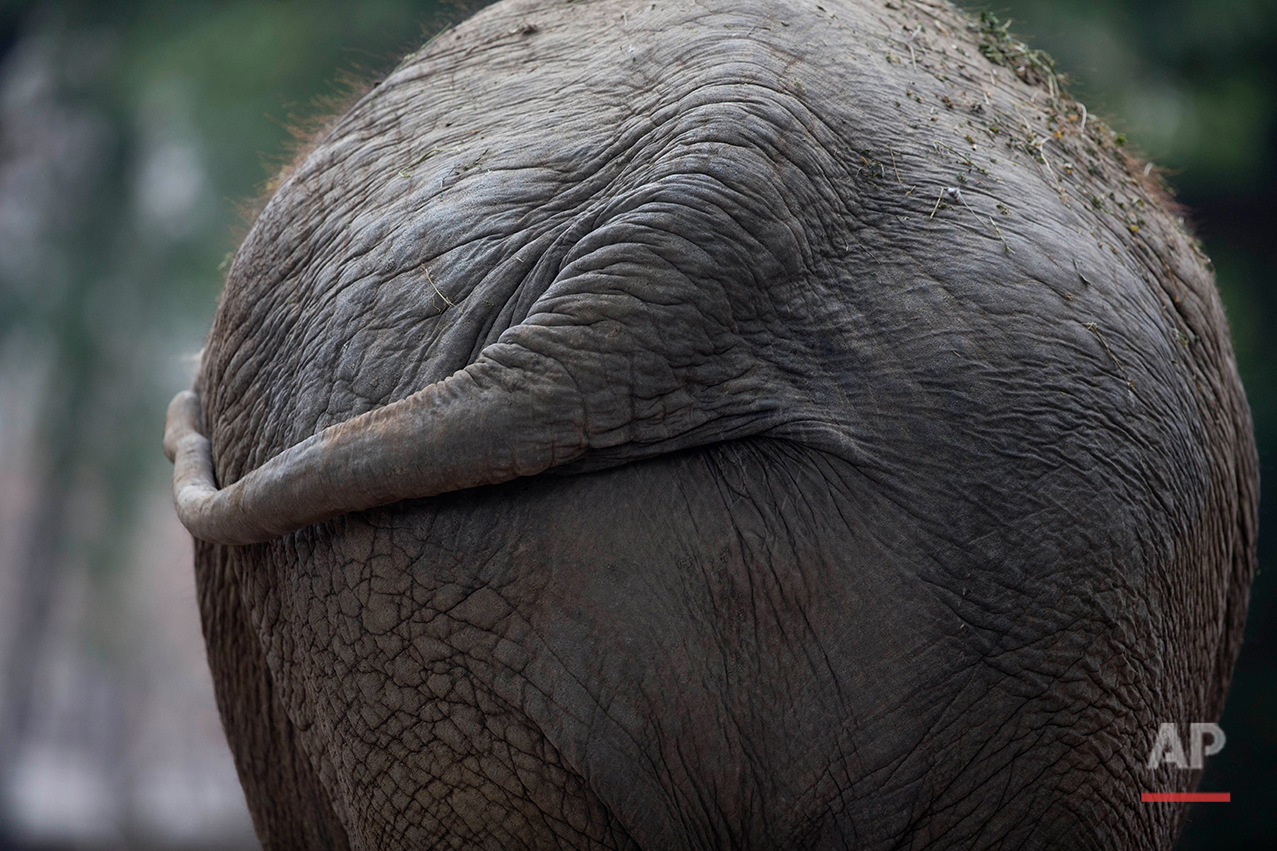
Argentina Closing the Zoo Photo Gallery
An elephant named "Pupi" swishes his tail inside the former Buenos Aires Zoo, Argentina, Friday, July 1, 2016. The city government announced last week it will transform the city's zoo into an ecological park for a limited number of species, and begin with the transfer of birds of prey to natural reserves. Their plan to also transform the site into a conservation and research facility will take years while veterinarians decide which animals can be transferred to reserves, locally and abroad. Those who stay at the ecological park will live in what officials describe as much better conditions. (AP Photo/Natacha Pisarenko)
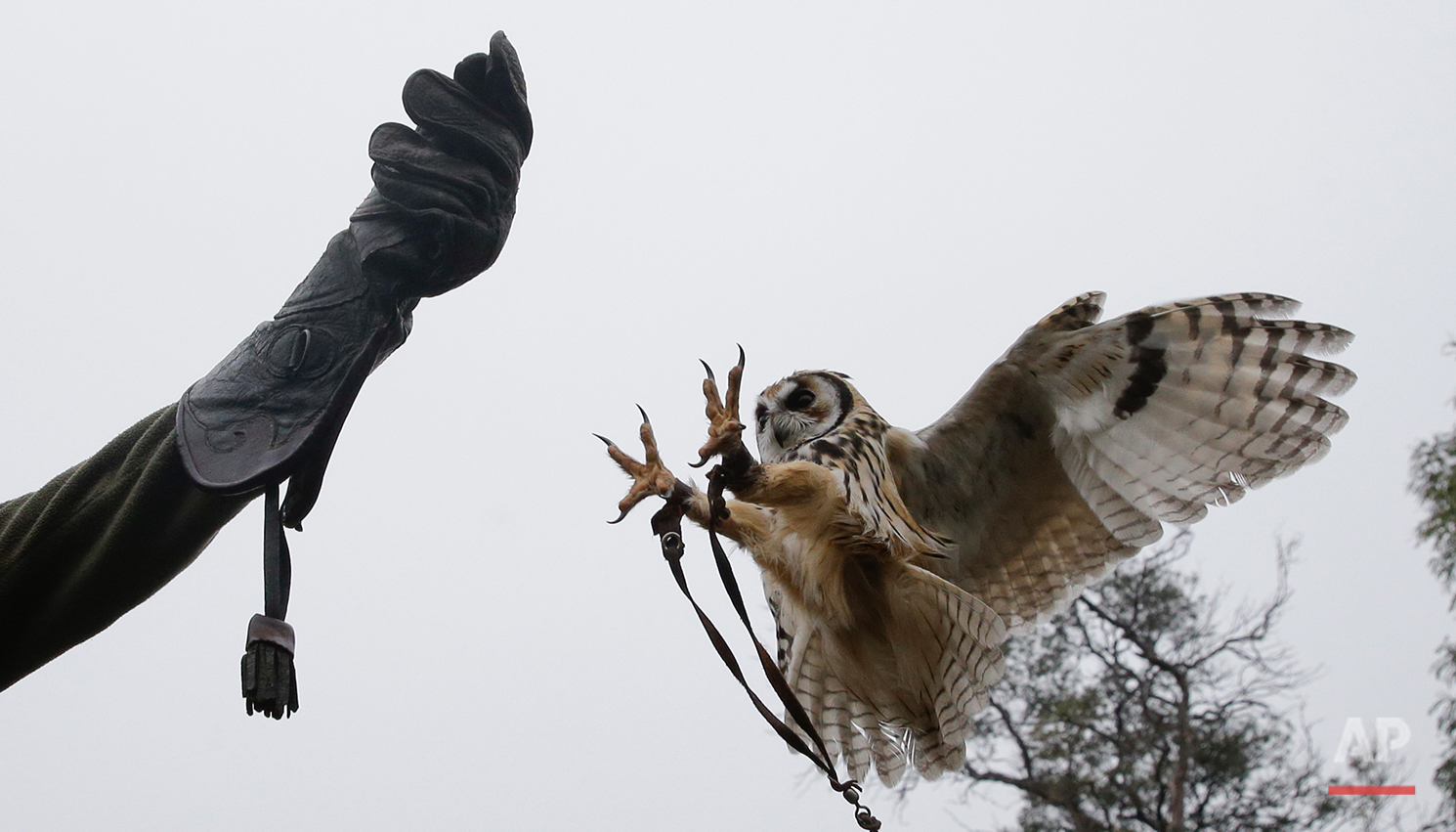
Argentina Closing the Zoo Photo Gallery
Bird trainer Rocio Prieto holds out her arm for an owl named "Gordon" to perch on, during the owl's regular exercise regimen outside its cage at the former Buenos Aires Zoo in Argentina, Friday, July 1, 2016. The city government announced last week it will transform the city's zoo into an ecological park for a limited number of species, and begin with the transfer of birds of prey to natural reserves. Their plan to also transform the site into a conservation and research facility will take years while veterinarians decide which animals can be transferred to reserves, locally and abroad. Those who stay at the ecological park will live in what officials describe as much better conditions. (AP Photo/Natacha Pisarenko)
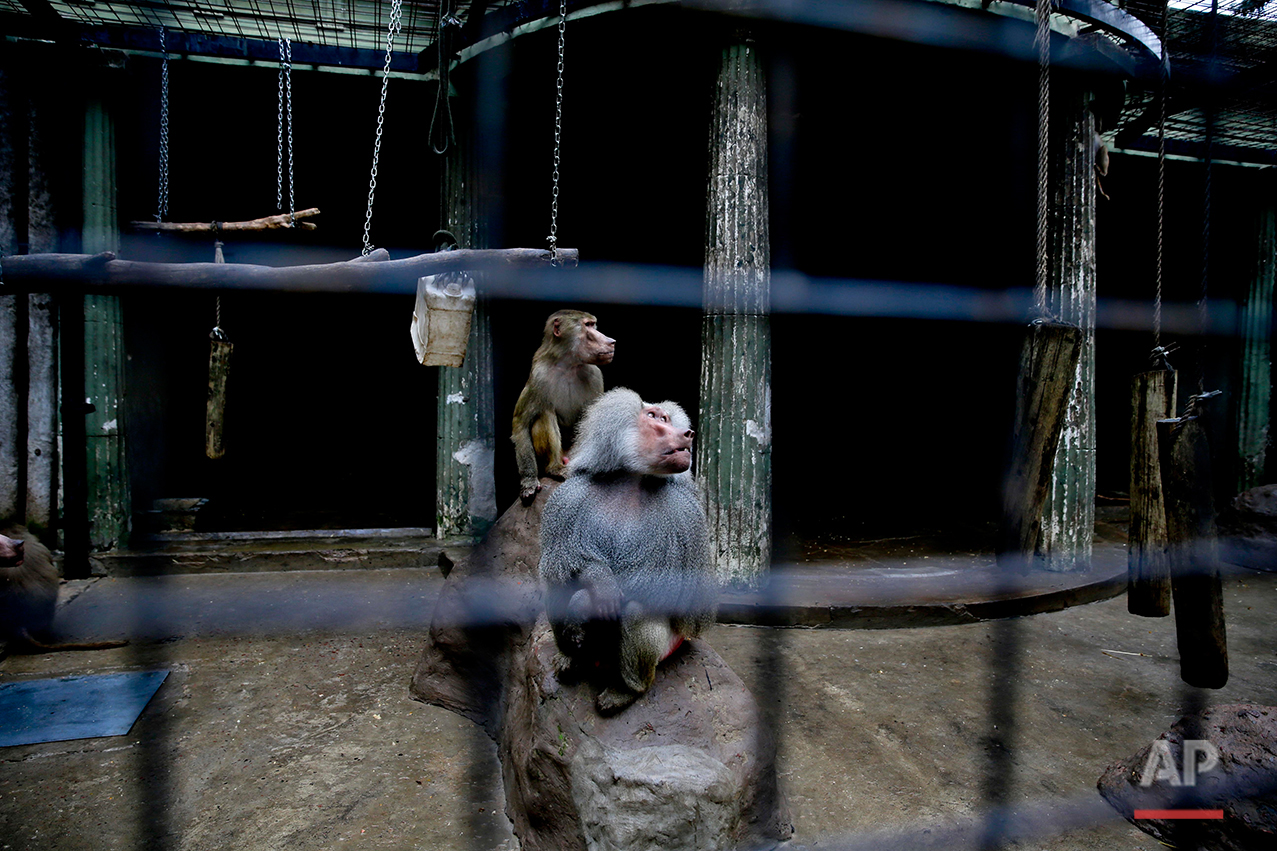
Argentina Closing the Zoo Photo Gallery
Monkeys stand inside a cage at the former Buenos Aires Zoo in Argentina, Friday, July 1, 2016. The city government announced last week it will transform the city's zoo into an ecological park for a limited number of species, and begin with the transfer of birds of prey to natural reserves. Their plan to also transform the site into a conservation and research facility will take years while veterinarians decide which animals can be transferred to reserves, locally and abroad. Those who stay at the ecological park will live in what officials describe as much better conditions. (AP Photo/Natacha Pisarenko)
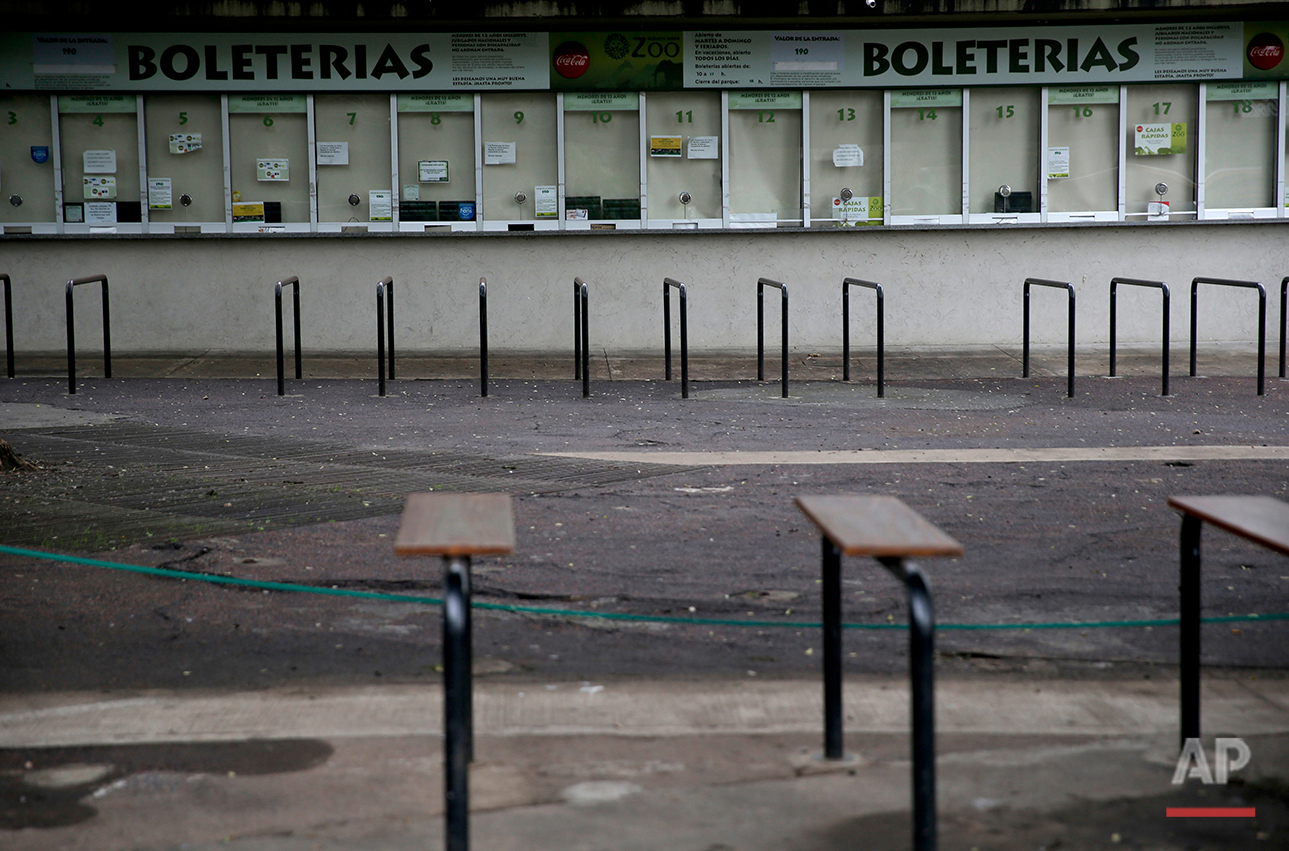
Argentina Closing the Zoo Photo Gallery
Ticket booths stand shuttered at the former Buenos Aires Zoo in Argentina, Friday, July 1, 2016. The city government announced last week it will transform the city's zoo into an ecological park for a limited number of species, and begin with the transfer of birds of prey to natural reserves. Their plan to also transform the site into a conservation and research facility will take years while veterinarians decide which animals can be transferred to reserves, locally and abroad. Those who stay at the ecological park will live in what officials describe as much better conditions. (AP Photo/Natacha Pisarenko)
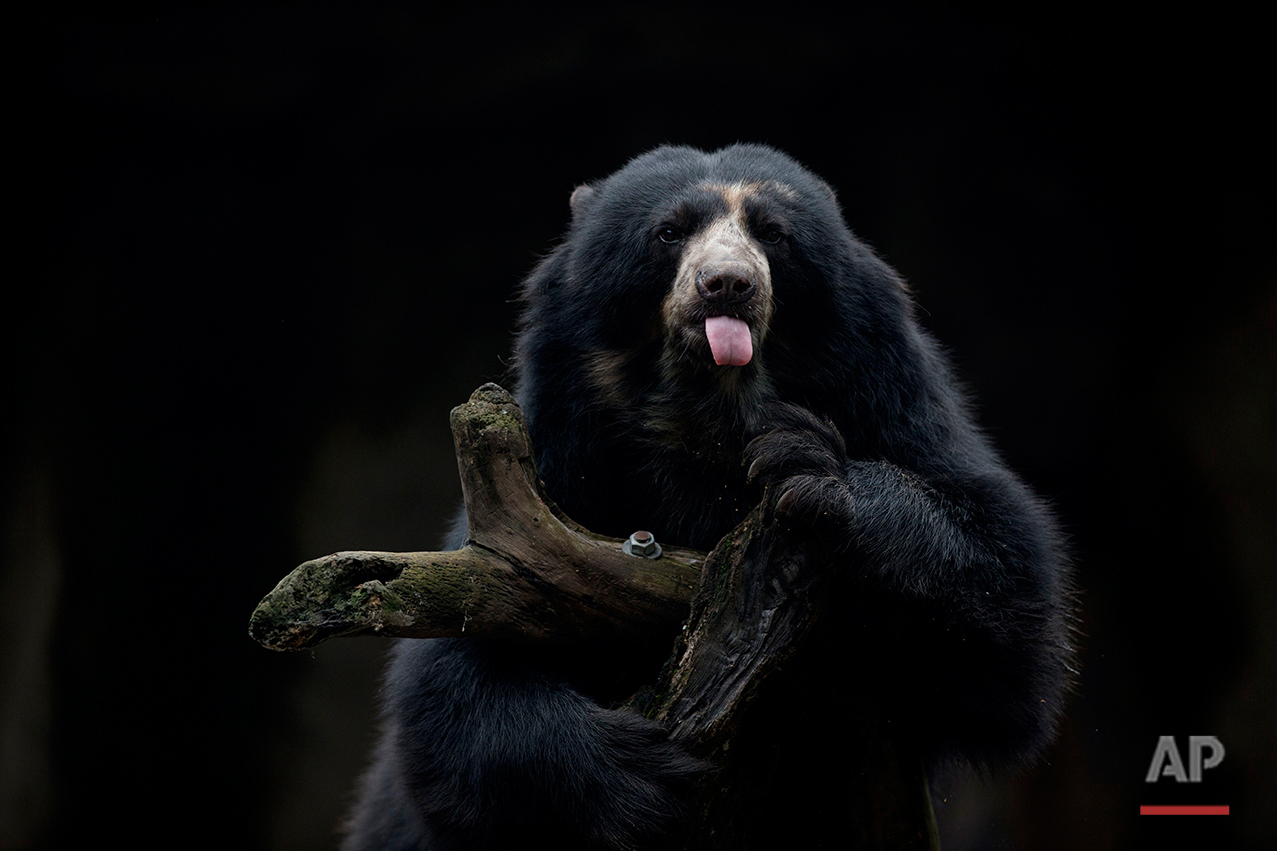
Argentina Closing the Zoo Photo Gallery
A bear sits on a branch inside the former Buenos Aires Zoo in Argentina, Friday, July 1, 2016. The city government announced last week it will transform the city's zoo into an ecological park for a limited number of species, and begin with the transfer of birds of prey to natural reserves. Their plan to also transform the site into a conservation and research facility will take years while veterinarians decide which animals can be transferred to reserves, locally and abroad. Those who stay at the ecological park will live in what officials describe as much better conditions. (AP Photo/Natacha Pisarenko)
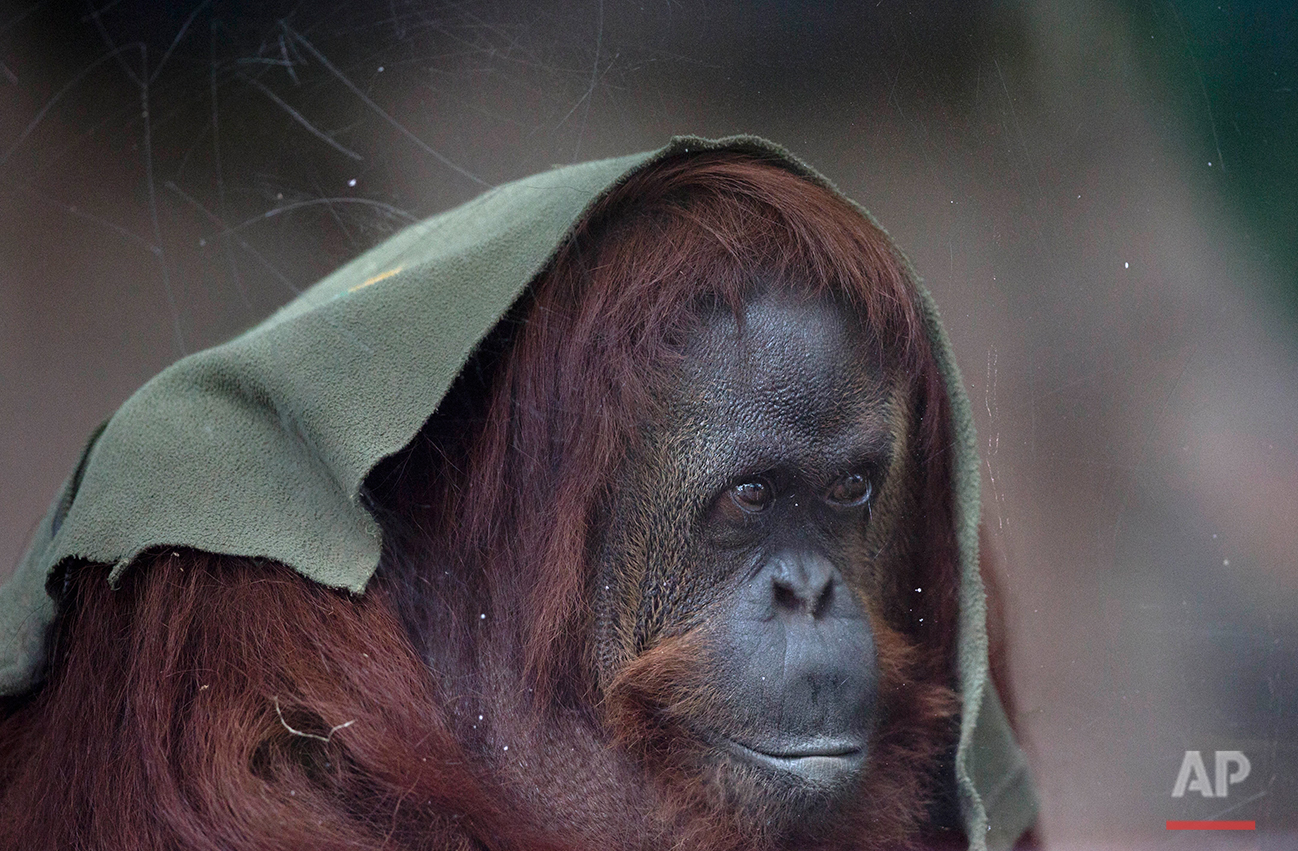
APTOPIX
An orangutan named "Sandra," photographed through a window, sits inside a cage at the former Buenos Aires Zoo in Argentina, Friday, July 1, 2016. The city government announced last week it will transform the city's zoo into an ecological park for a limited number of species, and begin with the transfer of birds of prey to natural reserves. Their plan to also transform the site into a conservation and research facility will take years while veterinarians decide which animals can be transferred to reserves, locally and abroad. But Sandra won’t be going with them. She’ll stay in a larger, better enclosure than the one she now endures, said Javier Goldschtein of Forest Bank Foundation, a member of the commission overseeing transformation of the zoo. (AP Photo/Natacha Pisarenko)
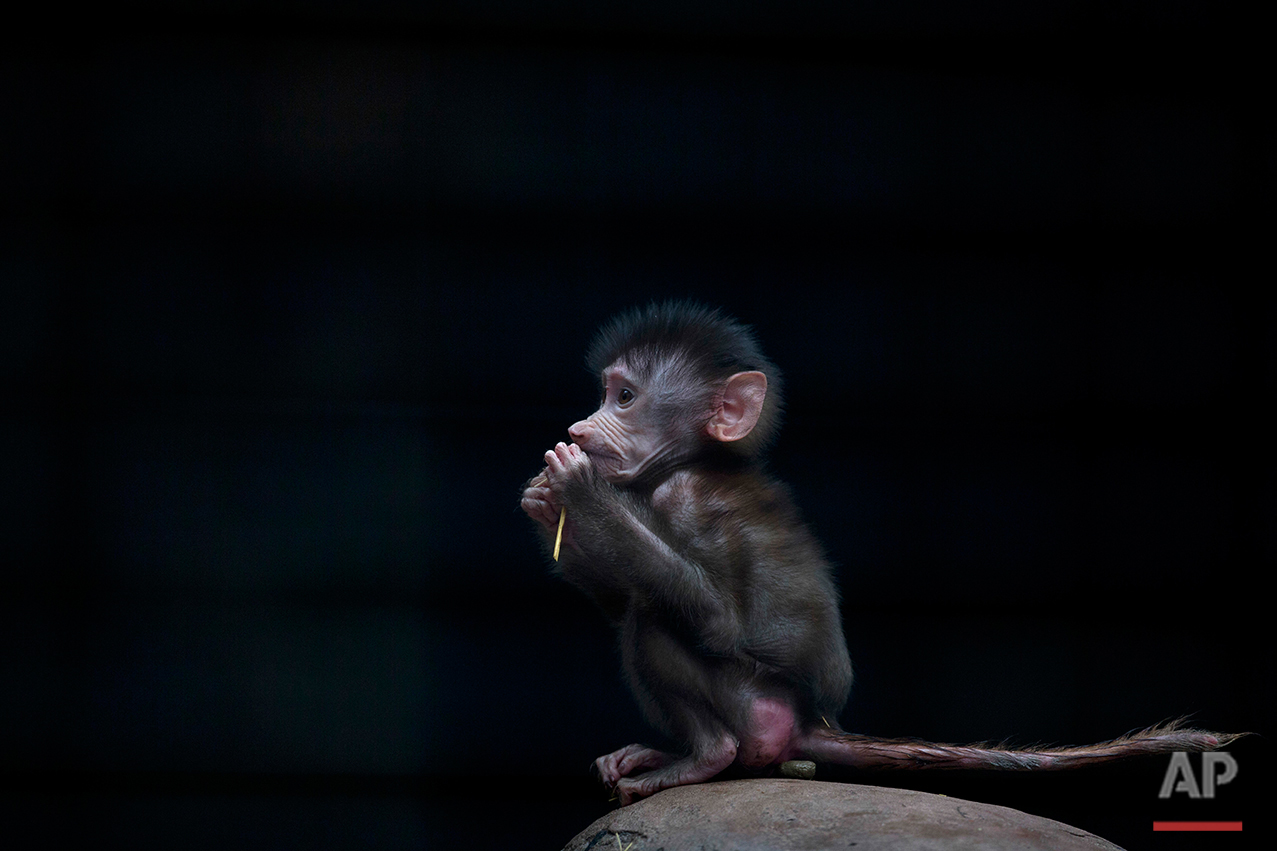
Argentina Closing the Zoo Photo Gallery
A baby monkey sits inside a cage at the former Buenos Aires Zoo in Argentina, Friday, July 1, 2016. TThe city government announced last week it will transform the city's zoo into an ecological park for a limited number of species, and begin with the transfer of birds of prey to natural reserves. Their plan to also transform the site into a conservation and research facility will take years while veterinarians decide which animals can be transferred to reserves, locally and abroad. Those who stay at the ecological park will live in what officials describe as much better conditions. (AP Photo/Natacha Pisarenko)
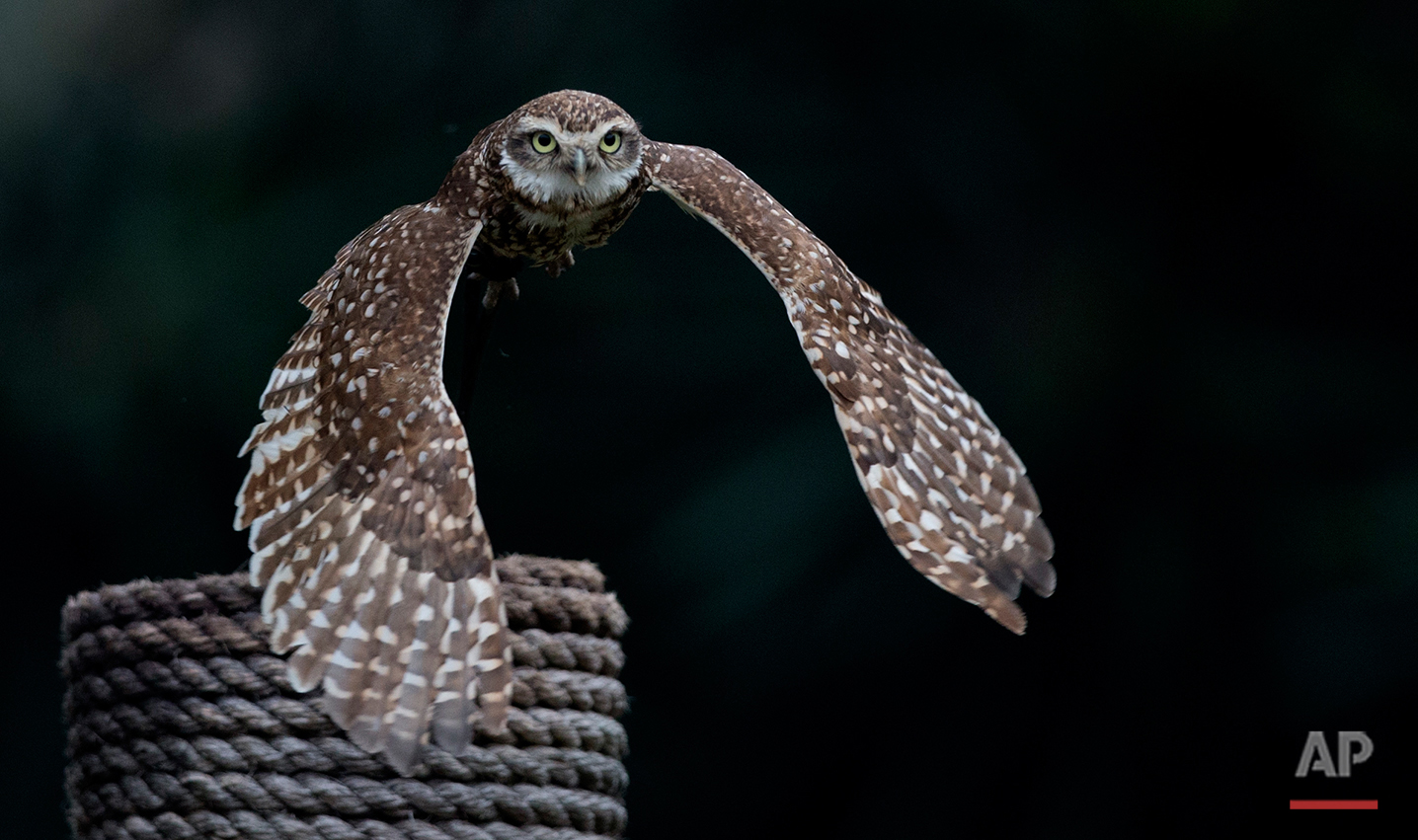
Argentina Closing the Zoo Photo Gallery
An owl named "Distinto" flies to her trainer inside a park as part of the birds exercise routine outside a cage at the former Buenos Aires Zoo, Argentina, Friday, July 1, 2016. The city government announced last week it will transform the city's zoo into an ecological park for a limited number of species, and begin with the transfer of birds of prey to natural reserves. Their plan to also transform the site into a conservation and research facility will take years while veterinarians decide which animals can be transferred to reserves, locally and abroad. Those who stay at the ecological park will live in what officials describe as much better conditions. (AP Photo/Natacha Pisarenko)
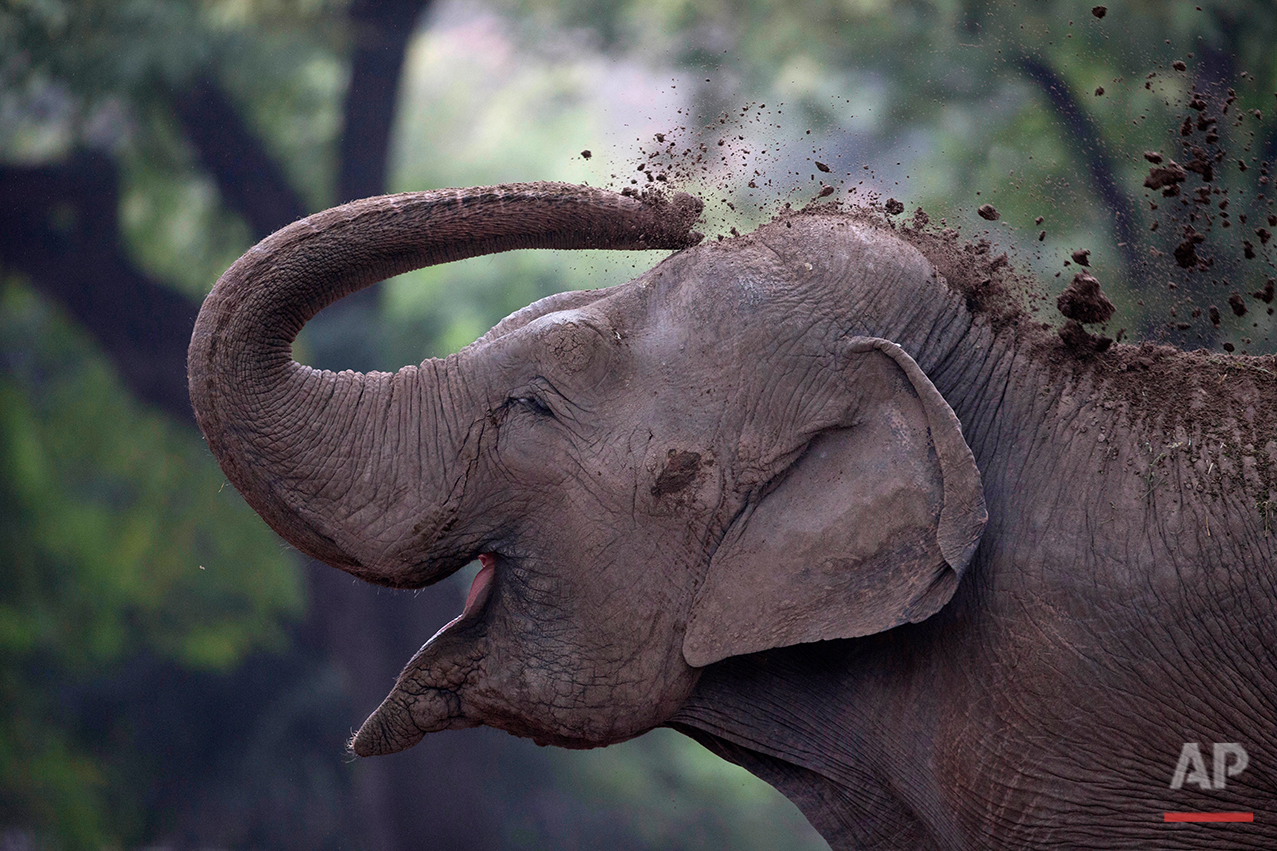
Argentina Closing the Zoo Photo Gallery
An elephant named "Pupi" throws dirt on her body inside the former Buenos Aires Zoo in Argentina, Friday, July 1, 2016. The city government announced last week it will transform the city's zoo into an ecological park for a limited number of species, and begin with the transfer of birds of prey to natural reserves. Their plan to also transform the site into a conservation and research facility will take years while veterinarians decide which animals can be transferred to reserves, locally and abroad. Those who stay at the ecological park will live in what officials describe as much better conditions. (AP Photo/Natacha Pisarenko)
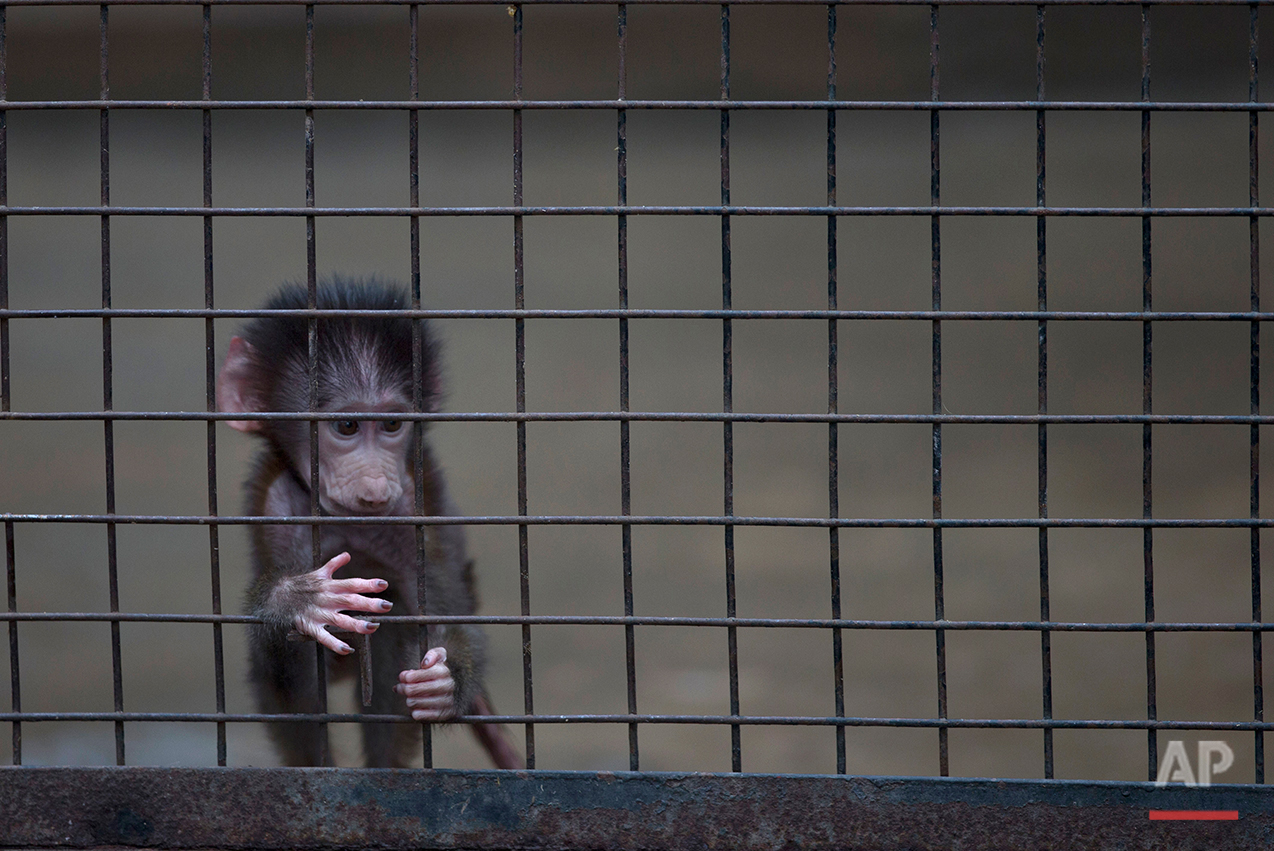
Argentina Closing the Zoo Photo Gallery
A baby monkey stands inside a cage at the former Buenos Aires Zoo in Argentina, Friday, July 1, 2016. The city government announced last week it will transform the city's zoo into an ecological park for a limited number of species, and begin with the transfer of birds of prey to natural reserves. Their plan to also transform the site into a conservation and research facility will take years while veterinarians decide which animals can be transferred to reserves, locally and abroad. Those who stay at the ecological park will live in what officials describe as much better conditions. (AP Photo/Natacha Pisarenko)
Text from the AP news story, Animals head for freedom as Argentina closes zoo, by Almudena Calatrava.
Follow AP photographers on Twitter: http://twitter.com/AP/lists/ap-photographers
Spotlight is the blog of AP Images, the world’s largest collection of historical and contemporary photos. AP Images provides instant access to AP’s iconic photos and adds new content every minute of every day from every corner of the world, making it an essential source of photos and graphics for professional image buyers and commercial customers. Whether your needs are for editorial, commercial, or personal use, AP Images has the content and the expert sales team to fulfill your image requirements. Visit apimages.com to learn more.
Written content on this site is not created by the editorial department of AP, unless otherwise noted.
AP Images on Twitter | AP Images on Facebook | AP Images on Instagram
Visual artist and Journalist





